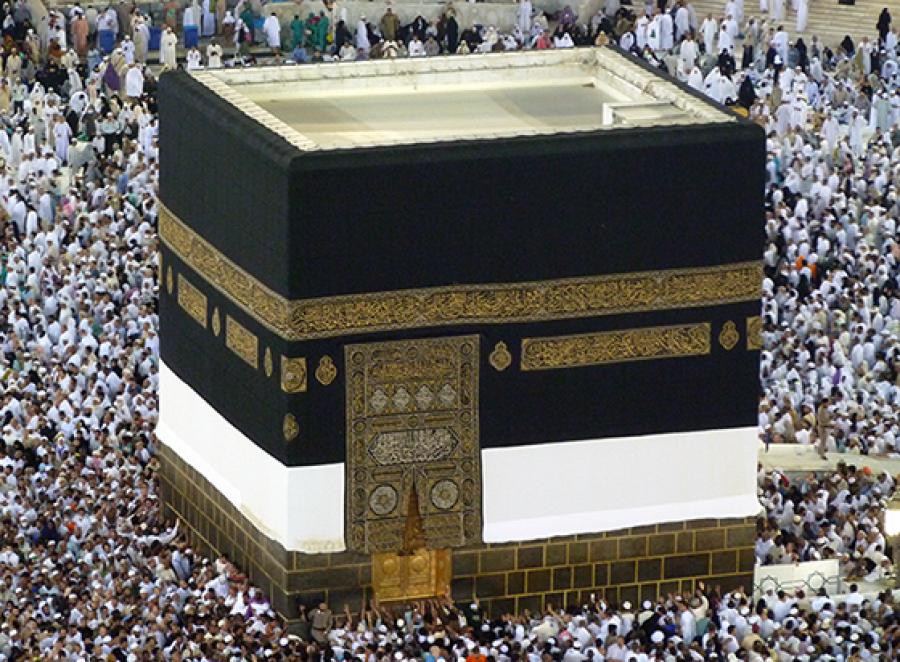"From the Sacrifice of the Soul to the Building of the Kaaba: The Narrative of Monotheism and Family in the Life of Ismail (AS)"
In the scorching heat of the desert of Mecca, a child named "Ismail" was born; a name that means "God hears." His birth was the beginning of a story that became not only the destiny of a prophet, but also a divine plan to guide humanity until the end of history. This narrative is not just a historical story, but a mirror in which every human being can find his own face; from the struggle with the soul to building a society based on monotheism.
When Ibrahim (AS) received the good news of the birth of Ismail in his old age, he could not even imagine that this child would one day become a role model for parents who today wander between the love of their child and the command of God. The Quran, with the verse “So We gave Abraham the good news of a forbearing son” (As-Saffat: 101), shows that raising a forbearing child is possible not by endless pampering, but by forgoing the “desires of the soul.” In a narration from Imam Sadiq (AS), it is stated: “Indeed, Allah, the Exalted, loves the forbearing and hates the ignorant” (Al-Kafi, Vol. 2, p. 111); Allah loves the forbearing and hates the ignorant. Modern research also confirms that children who grow up in an environment mixed with faith remain more steadfast in the storms of life (Harvard University study, 2019).
But the most difficult test came when Abraham (AS) saw in a dream that he had to sacrifice his beloved son. The young Ismail, knowing that this command might mean the end of his life, immediately said:
“O father, do what you are commanded” (As-Safat: 102) – Father! Do what you are commanded. This sentence is not a simple surrender, but a cry against the selfishness of today’s man who is ready to sacrifice even his family for fleeting benefits. Imam Ali (AS) says in Nahj al-Balagha: “The most miserable of people is the one who makes his parents suffer” (Wisdom 449); the most miserable of people is the one who makes his parents suffer. Mystics consider this scene to be a symbol of the “death of the soul”; The same lesson that is called “overcoming the ego” in psychology today (Ibn Arabi, Fusous al-Hakam, p. 123)!
After this test, Ismail (AS) laid the foundations of a family whose lessons are worth gold for the present age. He married a woman from the tribe of “Jorhum”, but when Ibrahim (AS) saw his wife’s inappropriate behavior on his journey to Mecca, he told his son: “This woman is not worthy of you.” Ismail immediately followed his father’s advice. The Prophet (PBUH) confirmed this principle by saying: “Whoever obeys me has obeyed Allah” (Sahih Bukhari, vol. 7321); Whoever obeys me has obeyed Allah. The Quran reminds us that a successful family is not based on wealth or ethnicity, but on piety, with the verse “And enjoin prayer on your family and be steadfast in it” (Taha: 132).
Ishmael (peace be upon him) and his father, together, dipped their hands in clay to build the Kaaba. As they raised the walls, they prayed: “Our Lord, and make us Muslims, submitting to You, and from our descendants a nation, submitting to You” (Baqarah: 128) – Our Lord! Make us submit to You and make a Muslim nation from our descendants. This prayer is the wish of every parent who wants their children to walk in the path of God. Imam Baqir (AS) said in his commentary on this verse: “Whoever asks Allah for Paradise three times, Allah will say to him: Indeed, you are of its people” (Tafsir Noor al-Thaqalayn, Vol. 1, p. 142). But today, when we encourage our children to “earn money”, are we also thinking of building a “Muslim nation”?
After Ishmael (AS), his people returned to idolatry. The Quran says in the verse “Do you take idols as gods” (Al-An’am: 74) – Do you take idols as gods? – It warns us that today’s idols – wealth, power and fame – are the same idols of yesterday. Imam Reza (AS) said:
“Whoever has Satan as his model, let him seek refuge in Allah”
(Ayoun Akhbar al-Rida, vol. 2, p. 69); Whoever sees Satan in front of him, let him seek refuge in Allah. We see the result of this deviation in the bitter statistics of depression and suicide; as if the Quran had said centuries ago: “So Allah made them taste hunger and fear” (An-Nahl: 112) – Allah made them taste hunger and fear.
But the most beautiful part of the story is the connection of Ismail (AS) with the Prophet Khatam (PBUH). God promised in the Quran: “And We placed among their descendants prophethood and the Scripture” (Al-Hadid: 26) – We placed prophethood and the Scripture in the descendants of Abraham and Ishmael.


















